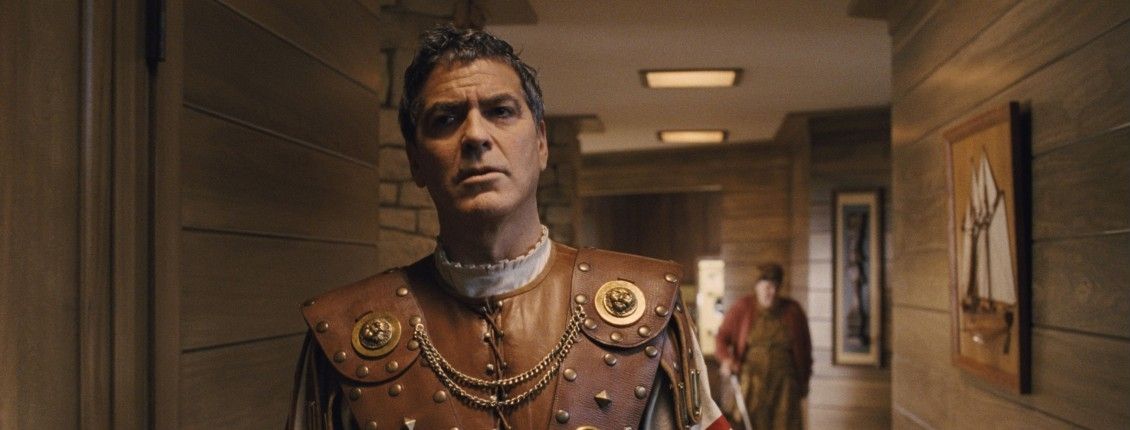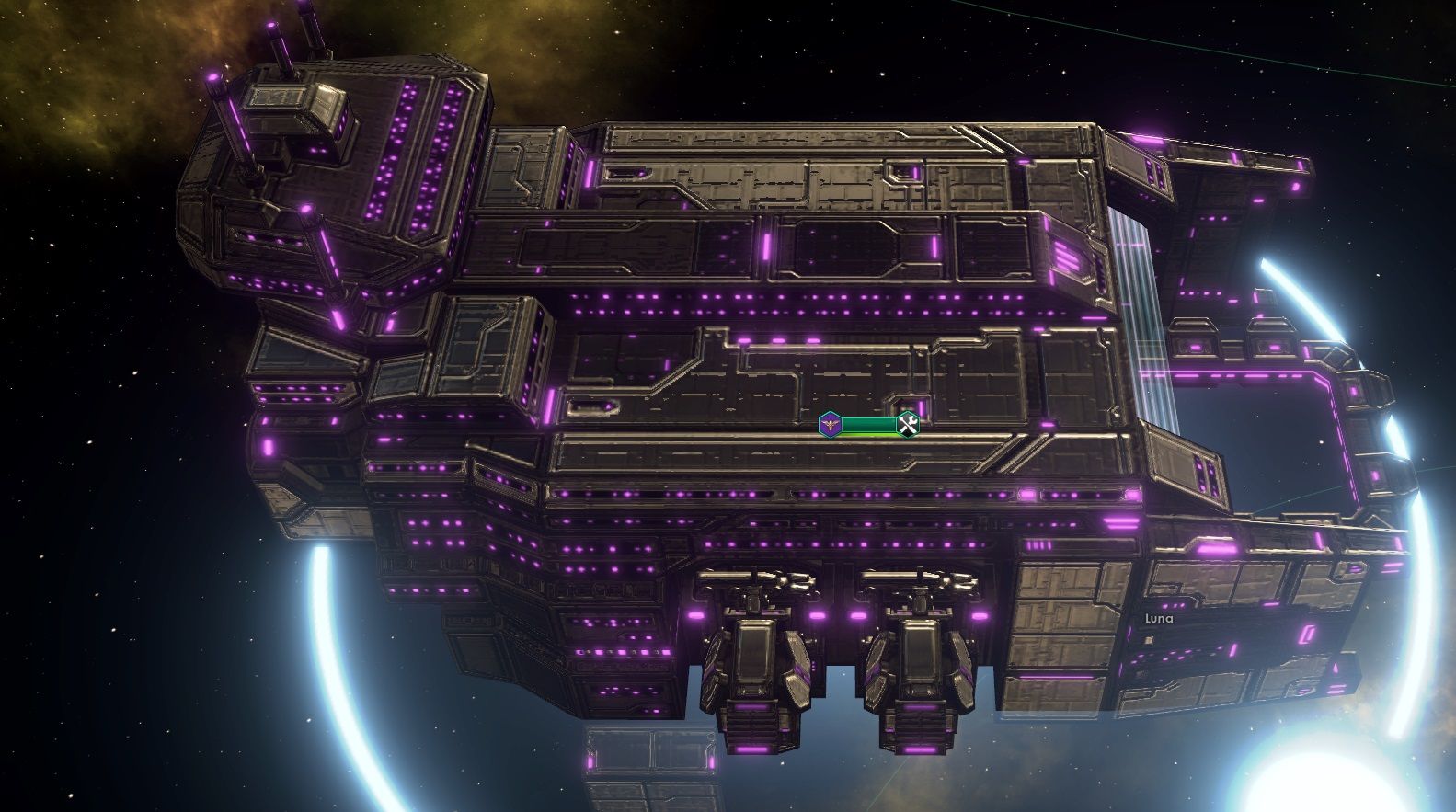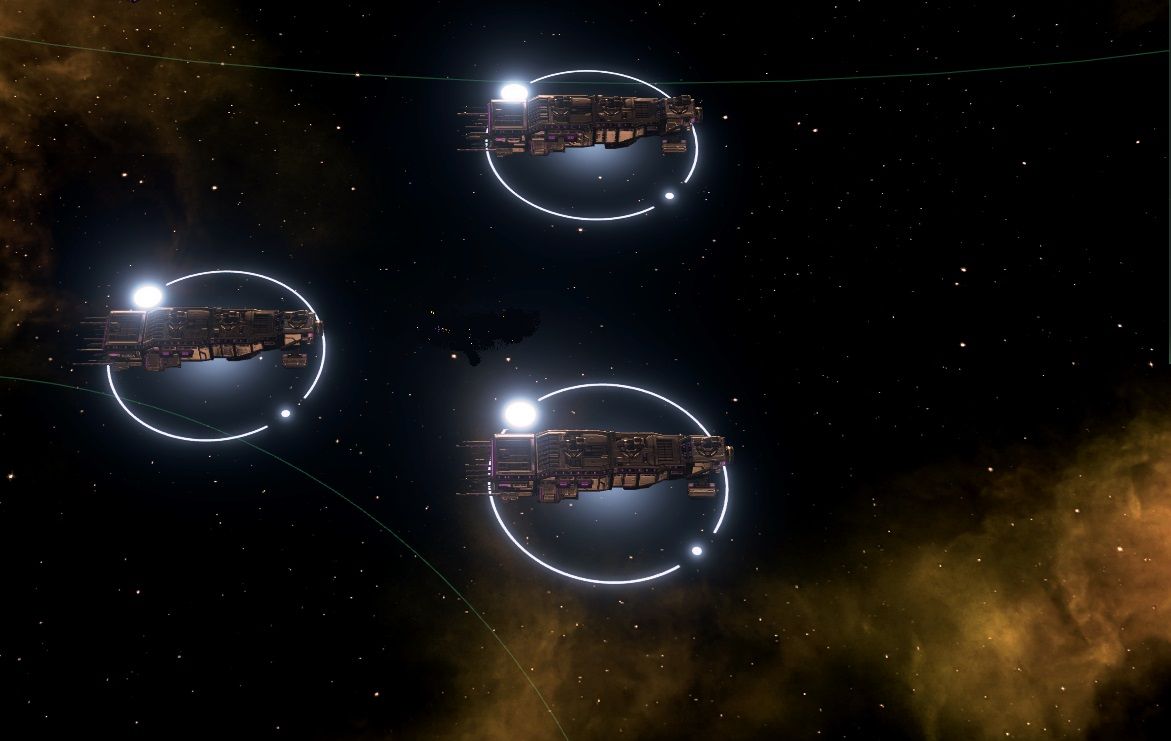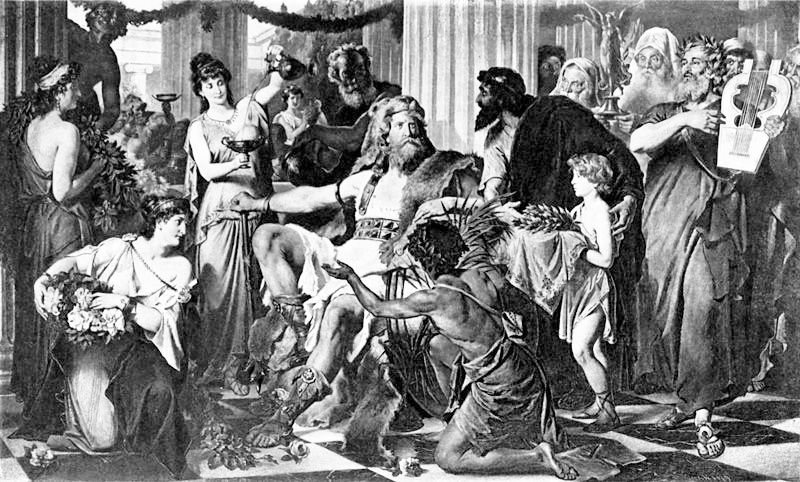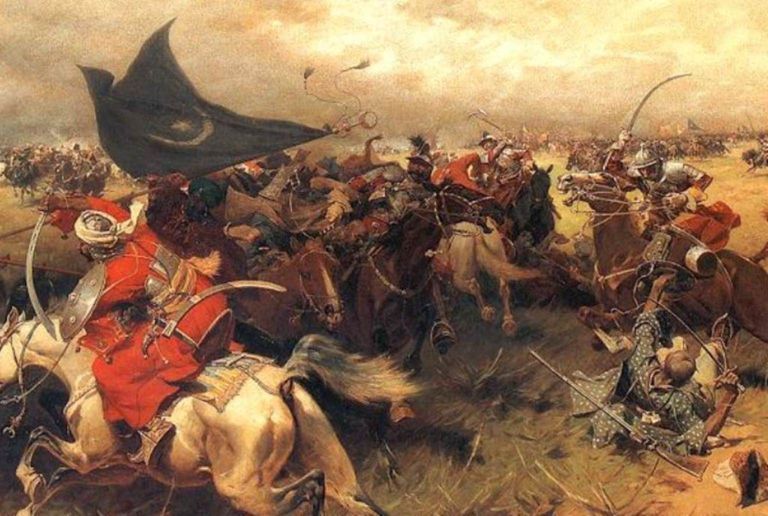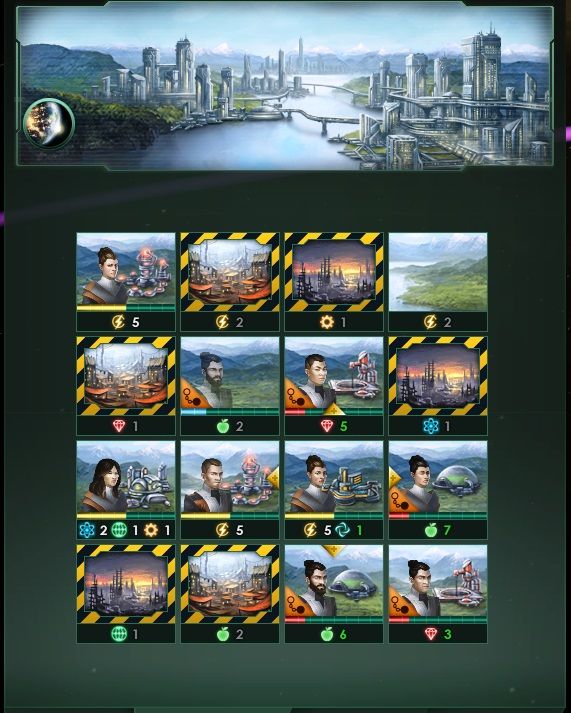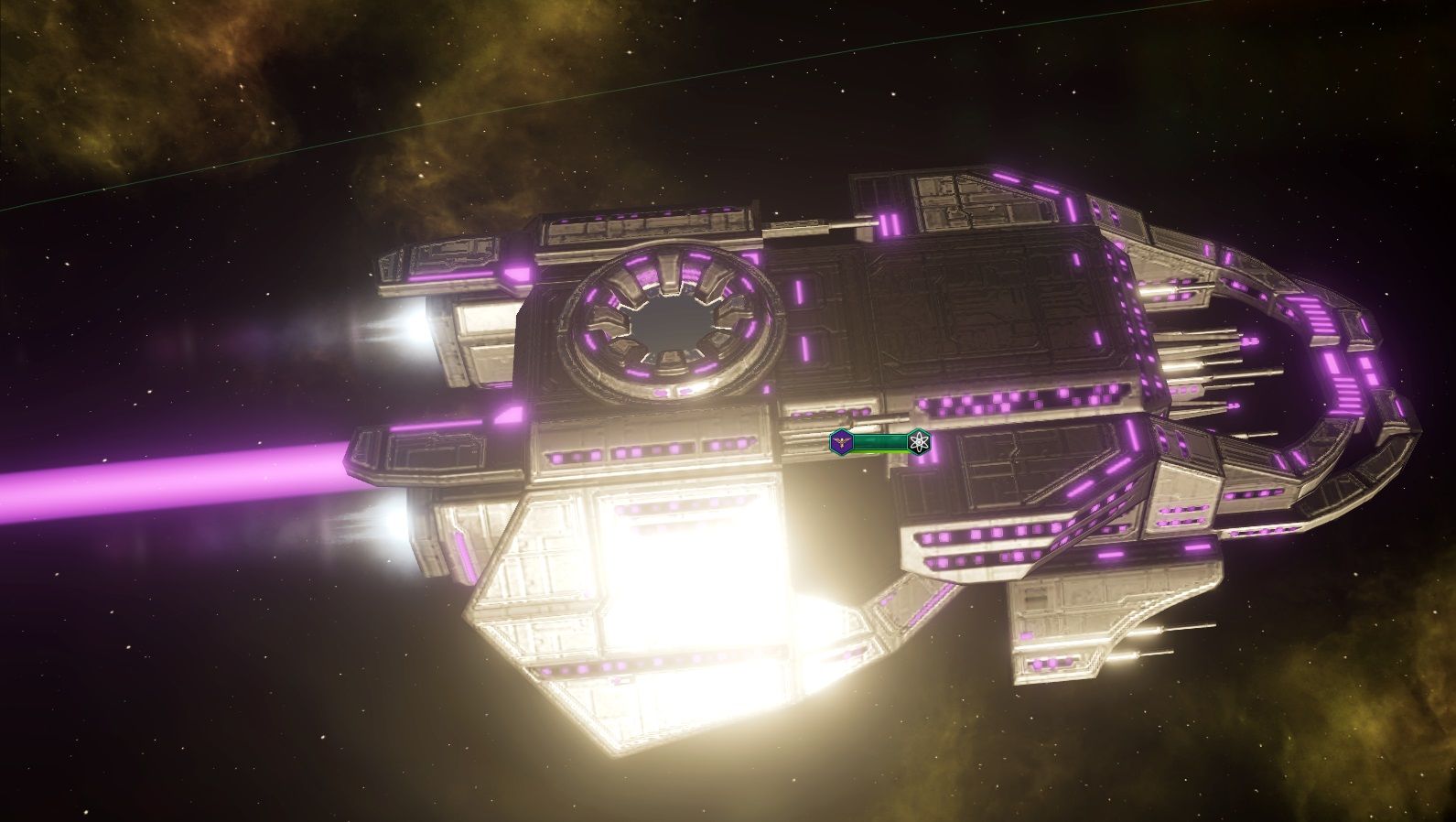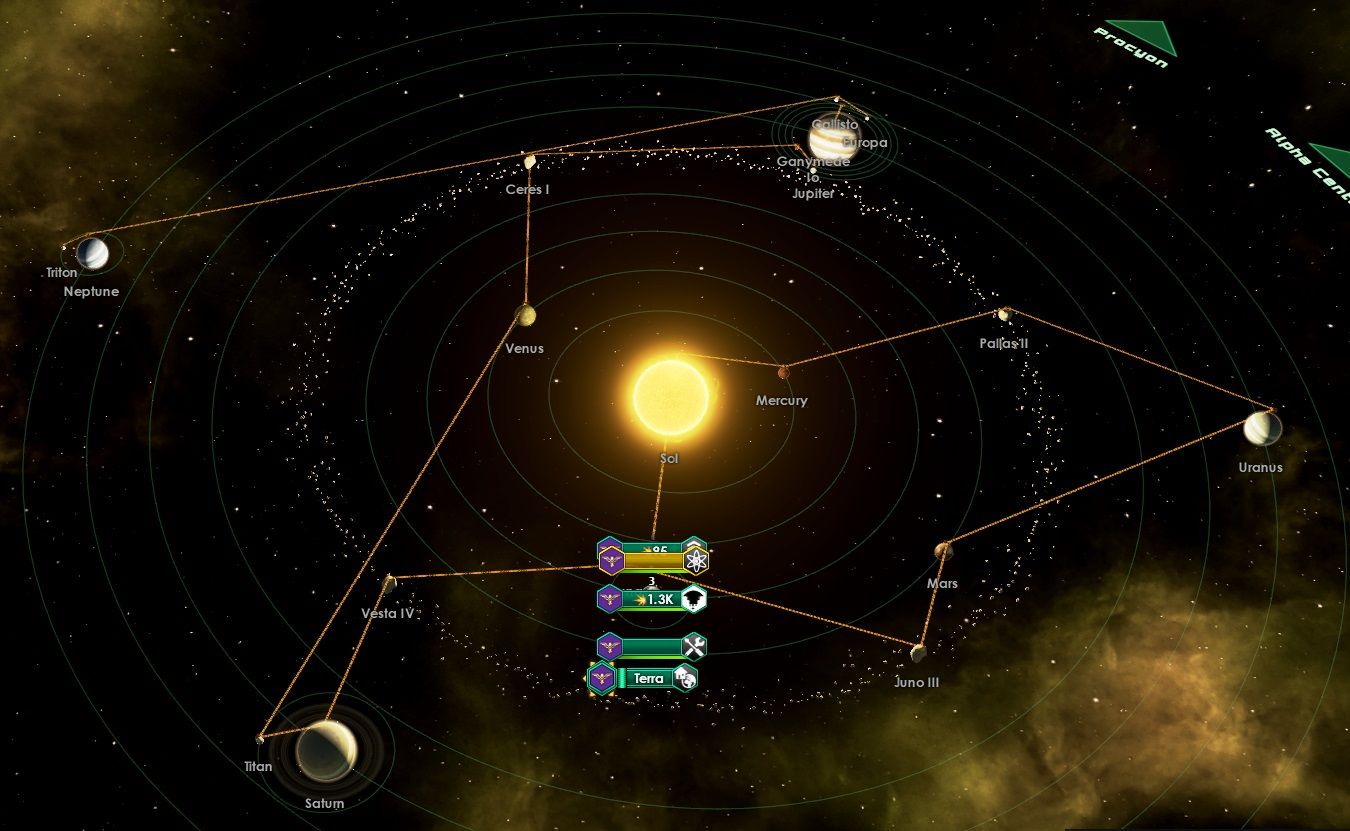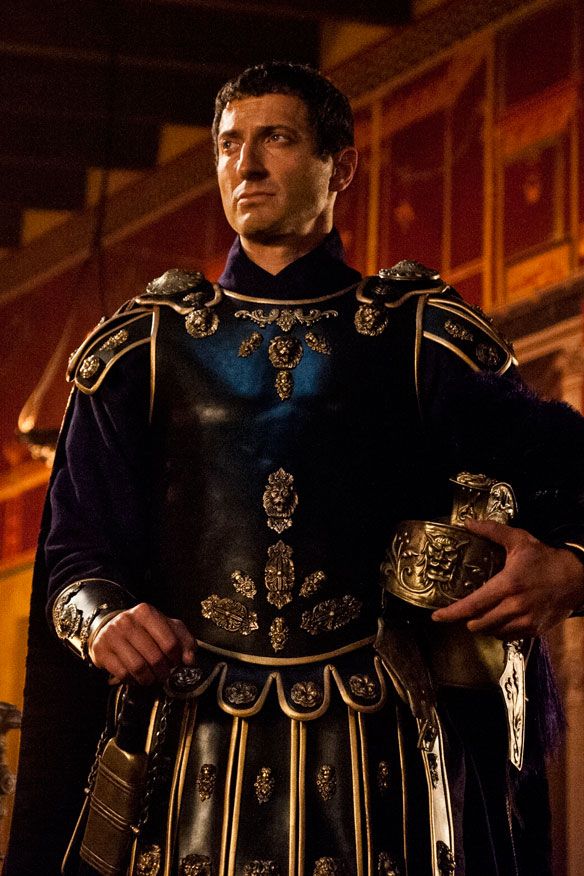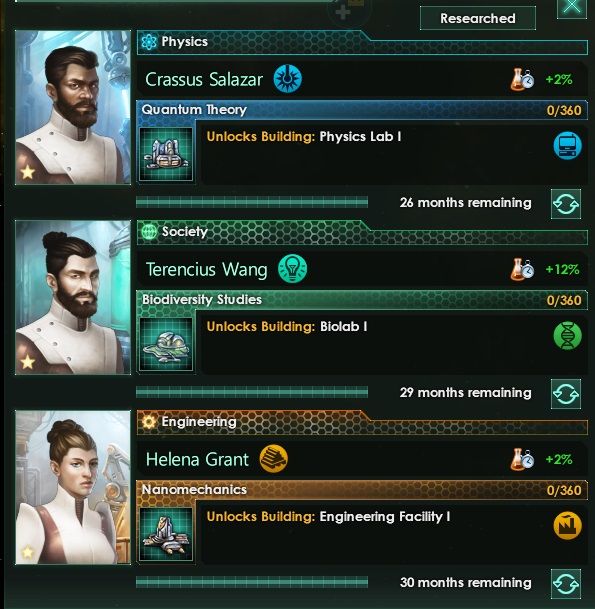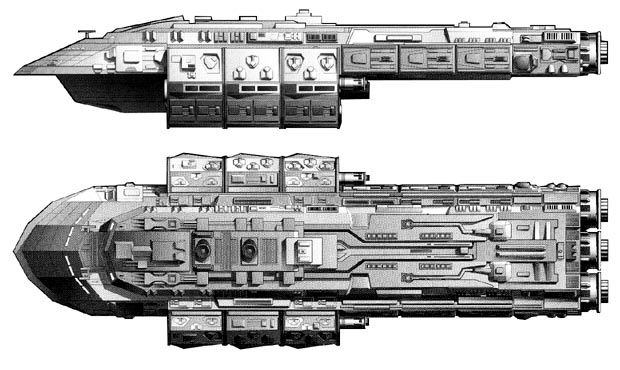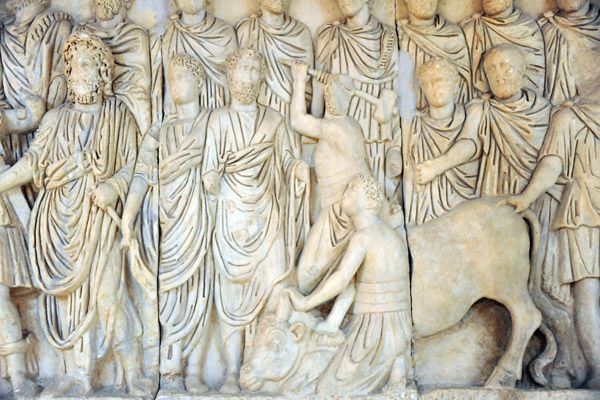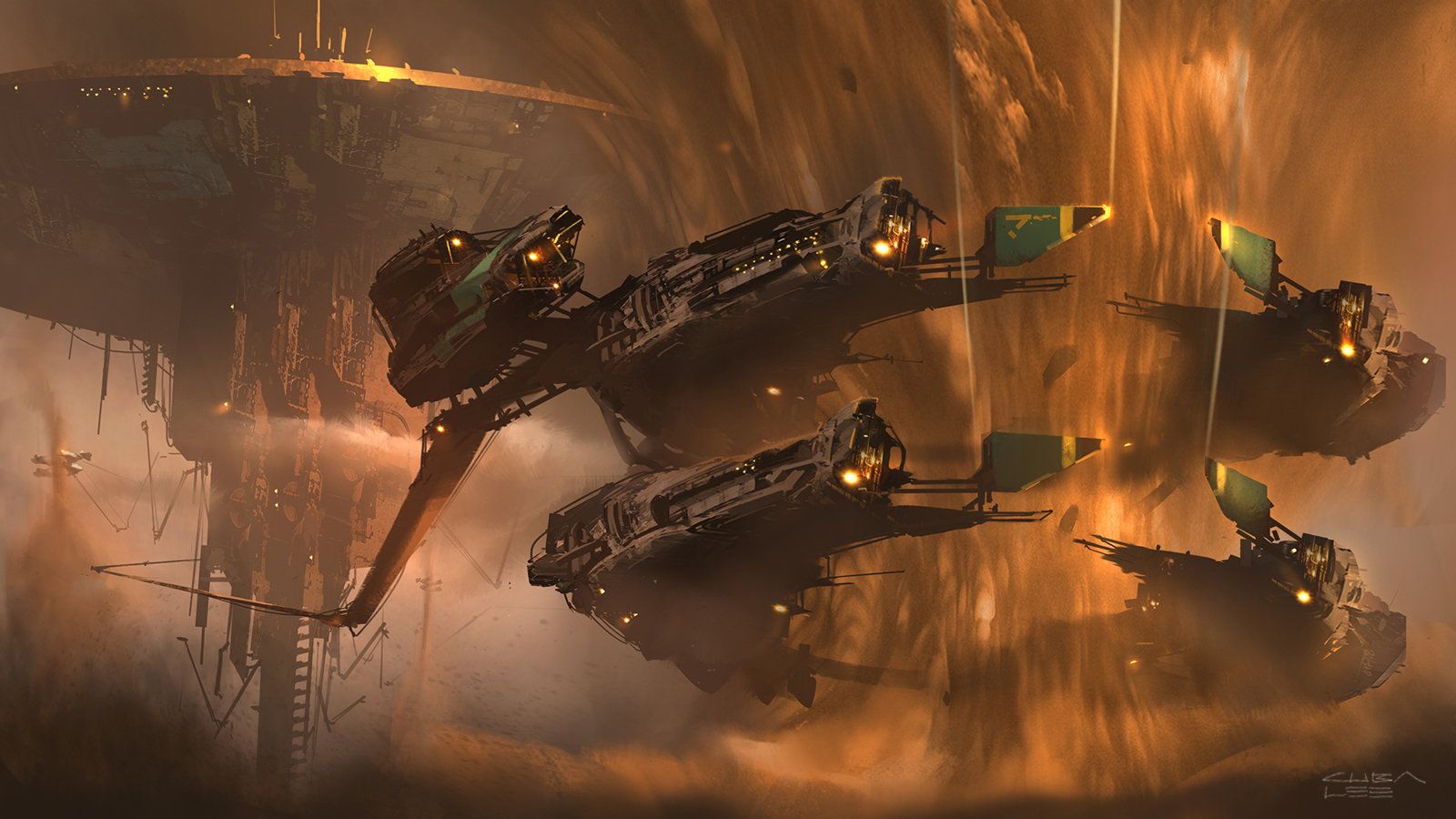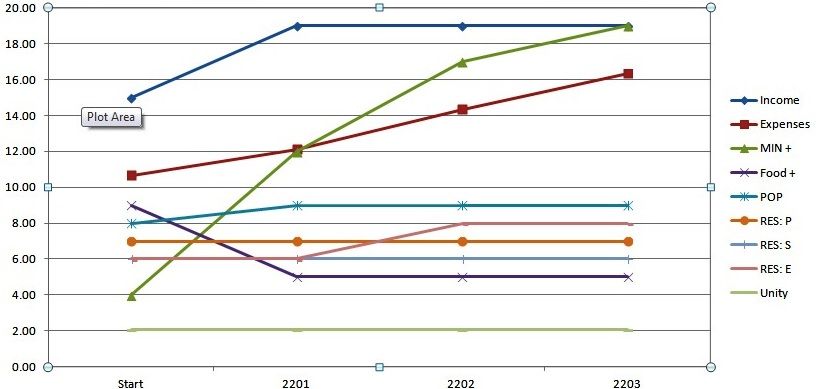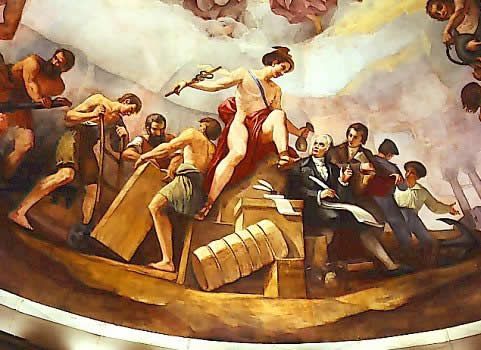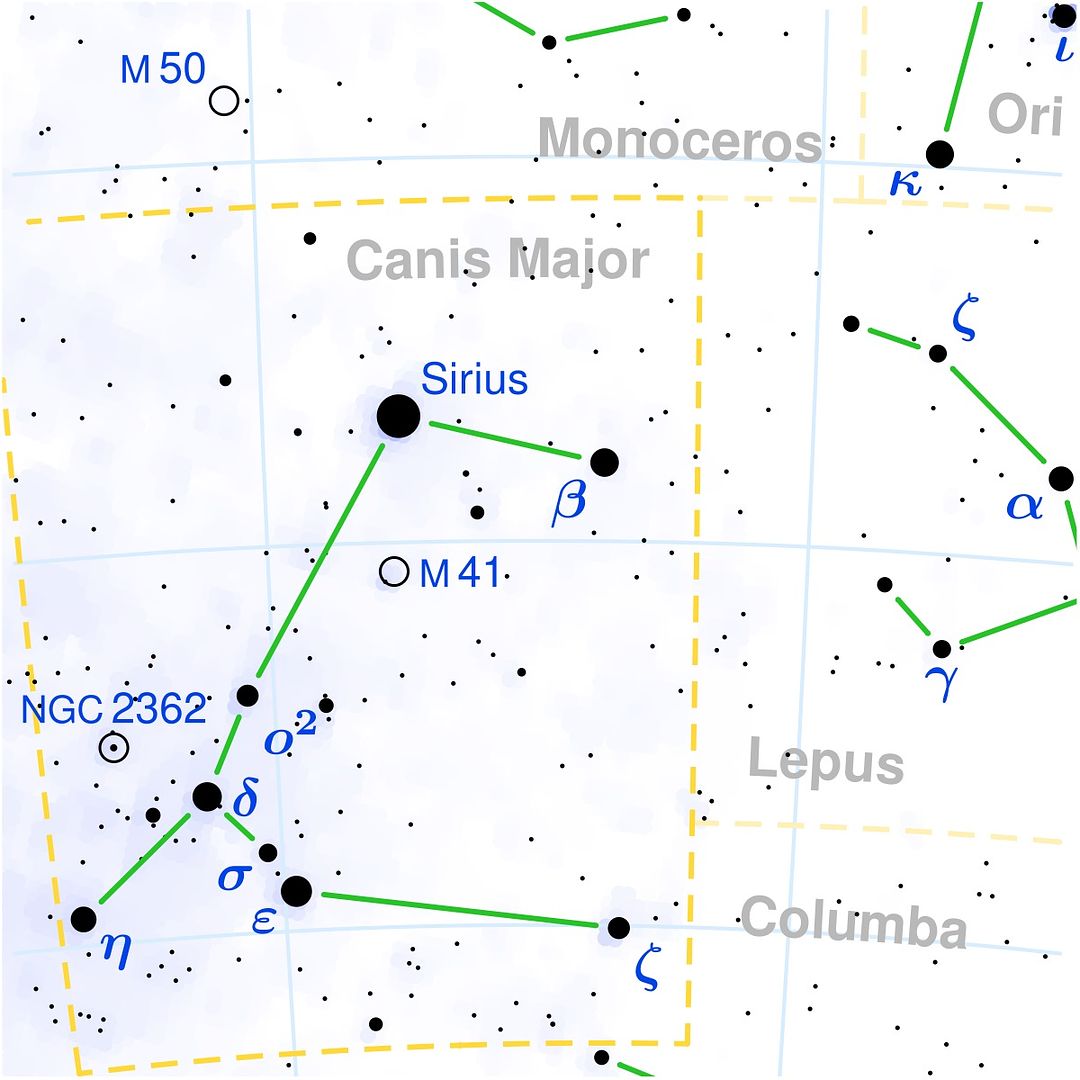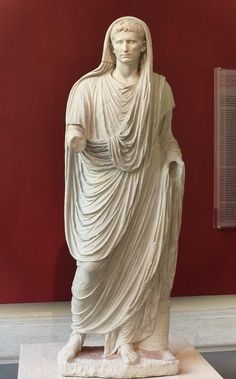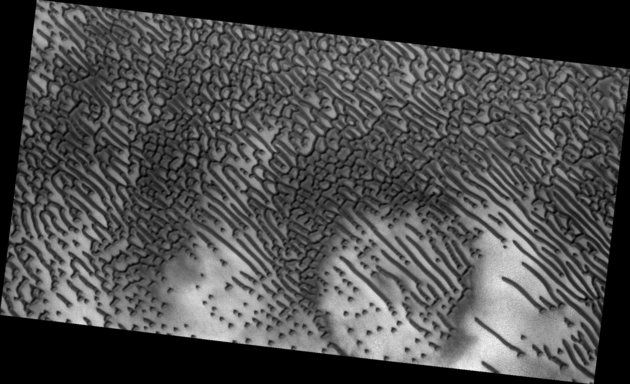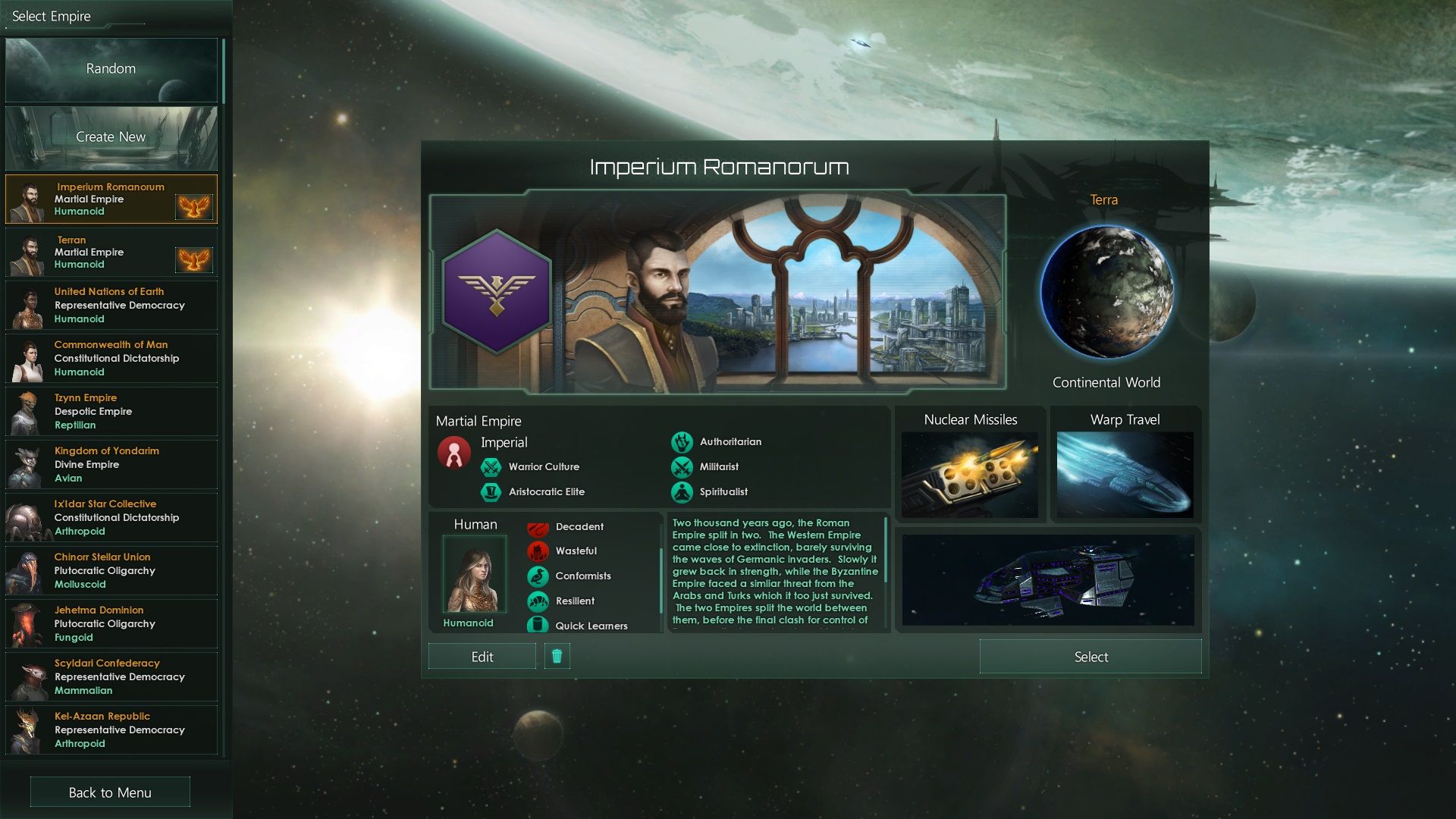Regere Imperio Populus: The Roman Empire Brings the Gift of Peace to the Universe
After many years of writing HOI3 AARs, it feels like time to avoid being typecast. Or, to be more honest, I need a break and we all know a change is as good as a rest. So Stellaris (and Utopia) seemed like a good alternative.
First, a trigger warning. (Are they obligatory on Paradox sites yet?)
Those who have followed my two HOI3 AARs know what to expect, but I should first warn people what not to expect.
Optimised play.
I can't do it. Not from an intellectual perspective, I am far too arrogant to believe some Swedish programmer can defeat me! But I find once I have worked out the best possible way to play a game I lose all interest in it. It is no fun playing a completely predictable (or even statistically predictable) game, and even less fun writing about it. I am more a "play by ear" player who uses a sort of role-play decision-making style and it shows.
Plus, in the interests of full disclosure, I only have about 25 hours of playing Stellaris, and this is my first go at Utopia. So it might all end in complete failure due to a mistake on day one. (I hope not - that is a sign of very bad game design and Paradox has always preferred to give you time to dig your grave a bit deeper). But the point is, don't read this to find out how to do things the best possible way. You could read it to find out things to avoid, as you see the disasters I self manufacture. Or you could read it to laugh at my struggles to escape predicaments. Just don't blame me if you copy anything I do.
Speed
Not in my DNA. I am what you might call a detail person, (yes, the "a" word has been used in the past) and as you can see from this intro, I don't mind using a lot of words to explain what I mean. Expect details, concentration on some tiny events that catch my interest, pure indulgence that takes up more time than you might think warranted.
If you need an example, look at either of my two HOI3 AARs. The second one was actually taking longer to play WW2 than real life.
The conquest of the universe might take some time to describe. (Bearing in mind Pdx might release an update before I finish.). Best hope I get wiped out before if you have other plans for the future.
What this AAR will be (or might be - who really knows?)
You know some things. It will be long, it will be verbose, it will be detailed and it will be drag on until you fear you will die before it ends. What else could you want? Who cares?
I have always wanted to do a sort of fantasy where the Roman Empire of the West survived and years later reunited with the Byzantine Empire. Sounds like a perfect CK2 or EU IV game, but I am not very good with those games, and for some unfathomable reason I never really got hooked on either. (Could the two reasons be related? And if so, did one cause the other? Or vice versa? There is a PhD in there somewhere).
Romans in space seemed a solution. (I really did not pinch the idea from the Hautevilles in Space, the latest descendant of that ancient lineage to hit the AAR lists).
A race of Decadent, Wasteful, Conformist, Resilient and Quick-learning individuals led by a government that is Authoritarian, Militaristic and Spiritual, backed by a Warrior Culture and an Aristocratic Elite. Sounded like what I would imagine a mix of Romans and Byzantines would be.
Decision made, time for lift off. (Already in space mode you see).
If you prefer your AARs to be a short and sweet, this is not for you.
Otherwise, in the words of some long dead advertising guru, watch this space.
Prologue: http://forum.paradoxplaza.com/forum...-peace-to-the-universe.1010704/#post-22644615
The Early Years
Year 2200: The First Year of the Imperium Universalis Romanorum: http://forum.paradoxplaza.com/forum...-peace-to-the-universe.1010704/#post-22652829
Years 2201-2: Tiny Steps: http://forum.paradoxplaza.com/forum...-peace-to-the-universe.1010704/#post-22659624
Years 2203-6: The First Colony and the First Crisis: http://forum.paradoxplaza.com/forum...-to-the-universe.1010704/page-2#post-22674289
Year 2207: The Battle of Sirius: http://forum.paradoxplaza.com/forum...-to-the-universe.1010704/page-2#post-22682184
Years 2207 - 10: Return to Expansion: http://forum.paradoxplaza.com/forum...-to-the-universe.1010704/page-2#post-22692027
Years 2211-2216: Hemmed In: https://forum.paradoxplaza.com/foru...-to-the-universe.1010704/page-2#post-22698428
Years 2217 - 2220: Teething Problems: https://forum.paradoxplaza.com/foru...-to-the-universe.1010704/page-3#post-22711578
Years 2221 - 2225: The Feonus Honey Trap: http://forum.paradoxplaza.com/forum...-to-the-universe.1010704/page-3#post-22722975
Years 2226 - 2228: Back to Feonus: http://forum.paradoxplaza.com/forum...-to-the-universe.1010704/page-3#post-22733167
Years 2229 - 2233: Speak Softly and Carry a Big Stick: http://forum.paradoxplaza.com/forum...-to-the-universe.1010704/page-4#post-22741462
Years 2234 - 2237: Nowhere to Go: http://forum.paradoxplaza.com/forum...-to-the-universe.1010704/page-4#post-22757361
Years 2238 - 2240: Res Gerenda "Illecabra": https://forum.paradoxplaza.com/foru...-to-the-universe.1010704/page-5#post-22776780
Years 2241 - 2246: The End of an Era: https://forum.paradoxplaza.com/foru...-to-the-universe.1010704/page-5#post-22791508
Years 2247 - 2248: The Calm Before the Storm: https://forum.paradoxplaza.com/foru...-to-the-universe.1010704/page-5#post-22797884
Rome Challenges the First Divine Queptilium Tribunal
Year 49: Cry Havoc! and Let Loose the Dogs of War: https://forum.paradoxplaza.com/foru...-to-the-universe.1010704/page-6#post-22808060
Year 50: The Battle of Aztan: https://forum.paradoxplaza.com/foru...-to-the-universe.1010704/page-7#post-22820999
Years 51 - 53: Cruel But Fair: https://forum.paradoxplaza.com/foru...-to-the-universe.1010704/page-7#post-22838863
Years 54 - 56: The Princeps Has Her First Success: https://forum.paradoxplaza.com/foru...-to-the-universe.1010704/page-7#post-22858228
Princeps Julieta Makes Her Mark
Years 57 - 60: Years of Rebuilding and Repair: https://forum.paradoxplaza.com/foru...-to-the-universe.1010704/page-8#post-22877786
Years 61 - 65: Carpe Diem: https://forum.paradoxplaza.com/foru...-to-the-universe.1010704/page-8#post-22890411
Years 66 - 68: Terra Marique: https://forum.paradoxplaza.com/foru...-to-the-universe.1010704/page-9#post-22903776
Years 69 - 73: Increasing the Pressure: https://forum.paradoxplaza.com/foru...-to-the-universe.1010704/page-9#post-22930433
Years 74 - 77: A Pause Between Courses: https://forum.paradoxplaza.com/foru...to-the-universe.1010704/page-10#post-22962459
Years 78 - 81: "Once More Into the Breach": https://forum.paradoxplaza.com/foru...to-the-universe.1010704/page-10#post-22998370
Years 82-83: "A Friend in Need ...": https://forum.paradoxplaza.com/foru...to-the-universe.1010704/page-11#post-23023906
Years 84 - 85: " .. is a Friend Indeed": https://forum.paradoxplaza.com/foru...to-the-universe.1010704/page-11#post-23078880
Years 85 - 86: Another Step Towards Our Goal: https://forum.paradoxplaza.com/foru...to-the-universe.1010704/page-11#post-23122165
After many years of writing HOI3 AARs, it feels like time to avoid being typecast. Or, to be more honest, I need a break and we all know a change is as good as a rest. So Stellaris (and Utopia) seemed like a good alternative.
First, a trigger warning. (Are they obligatory on Paradox sites yet?)
Those who have followed my two HOI3 AARs know what to expect, but I should first warn people what not to expect.
Optimised play.
I can't do it. Not from an intellectual perspective, I am far too arrogant to believe some Swedish programmer can defeat me! But I find once I have worked out the best possible way to play a game I lose all interest in it. It is no fun playing a completely predictable (or even statistically predictable) game, and even less fun writing about it. I am more a "play by ear" player who uses a sort of role-play decision-making style and it shows.
Plus, in the interests of full disclosure, I only have about 25 hours of playing Stellaris, and this is my first go at Utopia. So it might all end in complete failure due to a mistake on day one. (I hope not - that is a sign of very bad game design and Paradox has always preferred to give you time to dig your grave a bit deeper). But the point is, don't read this to find out how to do things the best possible way. You could read it to find out things to avoid, as you see the disasters I self manufacture. Or you could read it to laugh at my struggles to escape predicaments. Just don't blame me if you copy anything I do.
Speed
Not in my DNA. I am what you might call a detail person, (yes, the "a" word has been used in the past) and as you can see from this intro, I don't mind using a lot of words to explain what I mean. Expect details, concentration on some tiny events that catch my interest, pure indulgence that takes up more time than you might think warranted.
If you need an example, look at either of my two HOI3 AARs. The second one was actually taking longer to play WW2 than real life.
The conquest of the universe might take some time to describe. (Bearing in mind Pdx might release an update before I finish.). Best hope I get wiped out before if you have other plans for the future.
What this AAR will be (or might be - who really knows?)
You know some things. It will be long, it will be verbose, it will be detailed and it will be drag on until you fear you will die before it ends. What else could you want? Who cares?
I have always wanted to do a sort of fantasy where the Roman Empire of the West survived and years later reunited with the Byzantine Empire. Sounds like a perfect CK2 or EU IV game, but I am not very good with those games, and for some unfathomable reason I never really got hooked on either. (Could the two reasons be related? And if so, did one cause the other? Or vice versa? There is a PhD in there somewhere).
Romans in space seemed a solution. (I really did not pinch the idea from the Hautevilles in Space, the latest descendant of that ancient lineage to hit the AAR lists).
A race of Decadent, Wasteful, Conformist, Resilient and Quick-learning individuals led by a government that is Authoritarian, Militaristic and Spiritual, backed by a Warrior Culture and an Aristocratic Elite. Sounded like what I would imagine a mix of Romans and Byzantines would be.
Decision made, time for lift off. (Already in space mode you see).
If you prefer your AARs to be a short and sweet, this is not for you.
Otherwise, in the words of some long dead advertising guru, watch this space.
Prologue: http://forum.paradoxplaza.com/forum...-peace-to-the-universe.1010704/#post-22644615
The Early Years
Year 2200: The First Year of the Imperium Universalis Romanorum: http://forum.paradoxplaza.com/forum...-peace-to-the-universe.1010704/#post-22652829
Years 2201-2: Tiny Steps: http://forum.paradoxplaza.com/forum...-peace-to-the-universe.1010704/#post-22659624
Years 2203-6: The First Colony and the First Crisis: http://forum.paradoxplaza.com/forum...-to-the-universe.1010704/page-2#post-22674289
Year 2207: The Battle of Sirius: http://forum.paradoxplaza.com/forum...-to-the-universe.1010704/page-2#post-22682184
Years 2207 - 10: Return to Expansion: http://forum.paradoxplaza.com/forum...-to-the-universe.1010704/page-2#post-22692027
Years 2211-2216: Hemmed In: https://forum.paradoxplaza.com/foru...-to-the-universe.1010704/page-2#post-22698428
Years 2217 - 2220: Teething Problems: https://forum.paradoxplaza.com/foru...-to-the-universe.1010704/page-3#post-22711578
Years 2221 - 2225: The Feonus Honey Trap: http://forum.paradoxplaza.com/forum...-to-the-universe.1010704/page-3#post-22722975
Years 2226 - 2228: Back to Feonus: http://forum.paradoxplaza.com/forum...-to-the-universe.1010704/page-3#post-22733167
Years 2229 - 2233: Speak Softly and Carry a Big Stick: http://forum.paradoxplaza.com/forum...-to-the-universe.1010704/page-4#post-22741462
Years 2234 - 2237: Nowhere to Go: http://forum.paradoxplaza.com/forum...-to-the-universe.1010704/page-4#post-22757361
Years 2238 - 2240: Res Gerenda "Illecabra": https://forum.paradoxplaza.com/foru...-to-the-universe.1010704/page-5#post-22776780
Years 2241 - 2246: The End of an Era: https://forum.paradoxplaza.com/foru...-to-the-universe.1010704/page-5#post-22791508
Years 2247 - 2248: The Calm Before the Storm: https://forum.paradoxplaza.com/foru...-to-the-universe.1010704/page-5#post-22797884
Rome Challenges the First Divine Queptilium Tribunal
Year 49: Cry Havoc! and Let Loose the Dogs of War: https://forum.paradoxplaza.com/foru...-to-the-universe.1010704/page-6#post-22808060
Year 50: The Battle of Aztan: https://forum.paradoxplaza.com/foru...-to-the-universe.1010704/page-7#post-22820999
Years 51 - 53: Cruel But Fair: https://forum.paradoxplaza.com/foru...-to-the-universe.1010704/page-7#post-22838863
Years 54 - 56: The Princeps Has Her First Success: https://forum.paradoxplaza.com/foru...-to-the-universe.1010704/page-7#post-22858228
Princeps Julieta Makes Her Mark
Years 57 - 60: Years of Rebuilding and Repair: https://forum.paradoxplaza.com/foru...-to-the-universe.1010704/page-8#post-22877786
Years 61 - 65: Carpe Diem: https://forum.paradoxplaza.com/foru...-to-the-universe.1010704/page-8#post-22890411
Years 66 - 68: Terra Marique: https://forum.paradoxplaza.com/foru...-to-the-universe.1010704/page-9#post-22903776
Years 69 - 73: Increasing the Pressure: https://forum.paradoxplaza.com/foru...-to-the-universe.1010704/page-9#post-22930433
Years 74 - 77: A Pause Between Courses: https://forum.paradoxplaza.com/foru...to-the-universe.1010704/page-10#post-22962459
Years 78 - 81: "Once More Into the Breach": https://forum.paradoxplaza.com/foru...to-the-universe.1010704/page-10#post-22998370
Years 82-83: "A Friend in Need ...": https://forum.paradoxplaza.com/foru...to-the-universe.1010704/page-11#post-23023906
Years 84 - 85: " .. is a Friend Indeed": https://forum.paradoxplaza.com/foru...to-the-universe.1010704/page-11#post-23078880
Years 85 - 86: Another Step Towards Our Goal: https://forum.paradoxplaza.com/foru...to-the-universe.1010704/page-11#post-23122165
Last edited:


